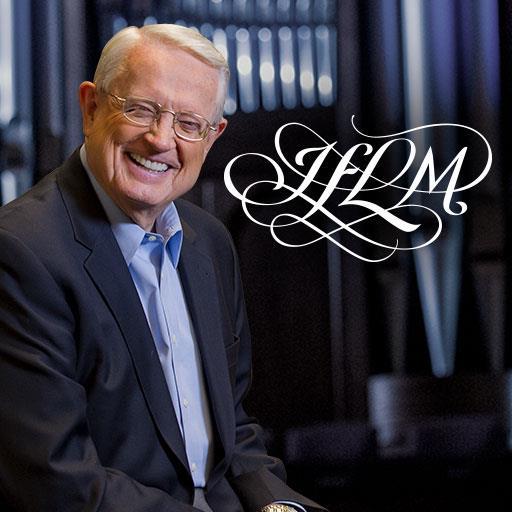I need to underscore a foundational fact: God’s goal is not to make sure you're happy. No matter how hard it is for you to believe this, it's time to do so. Life is not about your being comfortable and happy and successful and pain free. It's about becoming the man or woman God has called you to be. Unfortunately, we will rarely hear that message proclaimed today. All the more reason for me to say it again: Life is not about you! It's about God.
How can I say that with assurance? Because of Paul’s response in 2 Corinthians 12:9-10:
Most gladly, therefore, I will rather boast about my weaknesses, that the power of Christ may dwell in me. Therefore I am well content with weaknesses, with insults, with distresses, with persecutions, with difficulties, for Christ’s sake; for when I am weak, then I am strong.
That’s it! He got it, too. And he went with it for the rest of his days.
When you and I boast of our strengths, we get the credit, and we keep going under our own head of steam. But when we boast in what He is doing in the midst of our brokenness, inability, and inadequacy, Christ comes to the front. His strength comes to our rescue. He is honored.
Don’t miss that point. The very things we dread and run from in our lives are precisely what brought contentment to Paul. Look at the list: I am content when I lose. I am content when I am weak. I am content with insults. I am content when I am slandered. I am content in distresses. I am content with persecutions. I am content with difficulties and pressures that are so tight I can hardly turn around. Why? “Because when I am weak, then I am strong” (v. 10). Knowing that brought the apostle, ablaze with the flaming oracles of heaven, to his knees. What a way to live your life—content in everything—knowing that divine strength comes when human weakness is evident.
Paul recommends an attitude of unselfish humility. Quite remarkably, you never read where Paul said to his Roman guard, while he was in prison: “I need you to do me a favor. Next time you happen to be near one of the Emperor’s assistants, urge him to get me out of this dump. I shouldn’t be here in the first place. I’ve been here for one year, seven months, four days, five hours, and nine minutes, and that’s long enough.” Paul’s attitude of unselfish humility prevented him from keeping meticulous records of the wrongs done to him in Rome, or anywhere else for that matter. He was in prison by divine appointment. He willingly submitted to his situation.
Christ modeled the great emptying-out principle that permeated Paul’s remarkable life. If we want to learn contentment, developing an attitude of unselfish humility is the perfect place to begin. Start with your family or neighbors. Model it before your employees or clients. You won’t believe the impact that sort of selfless mental attitude will have on the people. You won’t have to raise flags or pass out tracts. Just demonstrate an attitude of unselfish humility. The results will amaze you.
Paul exhorts believers to have an attitude of joyful acceptance. Paul minced no words about how believers should relate to one another. “Do all things without grumbling or disputing; that you may prove yourselves to be blameless and innocent, children of God above reproach in the midst of a crooked and perverse generation, among whom you appear as lights in the world” (Philippians 2:14-15). He sought an attitude of joyful acceptance, free of petty disputes and bickering. He pled for authentic joy. Nothing is more contagious!
Copyright © 2010 by Charles R. Swindoll, Inc. All rights reserved worldwide.
About the author
Pastor Chuck Swindoll
Pastor Charles R. Swindoll has devoted his life to the accurate, practical teaching and application of God’s Word. He is the founding pastor of Stonebriar Community Church in Frisco, Texas, but Chuck’s listening audience extends far beyond a local church body. As a leading program in Christian broadcasting since 1979, Insight for Living airs around the world. Chuck’s leadership as president and now chancellor emeritus at Dallas Theological Seminary has helped prepare and equip a new generation of men and women for ministry.
More articles by Pastor Chuck Swindoll







